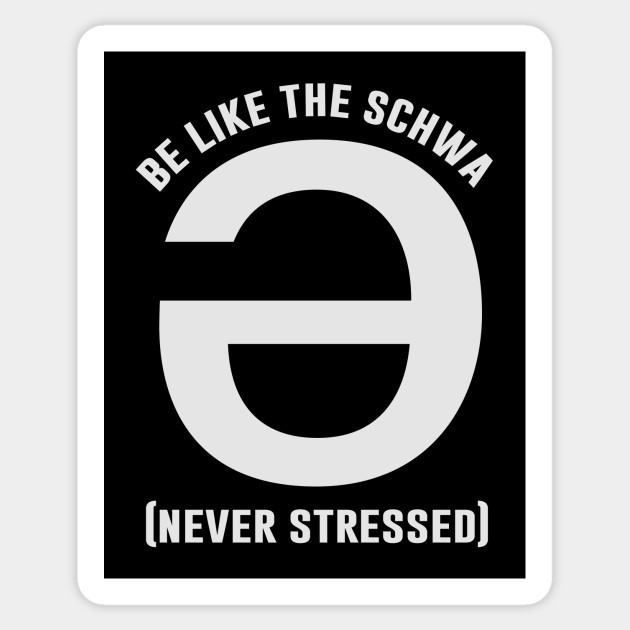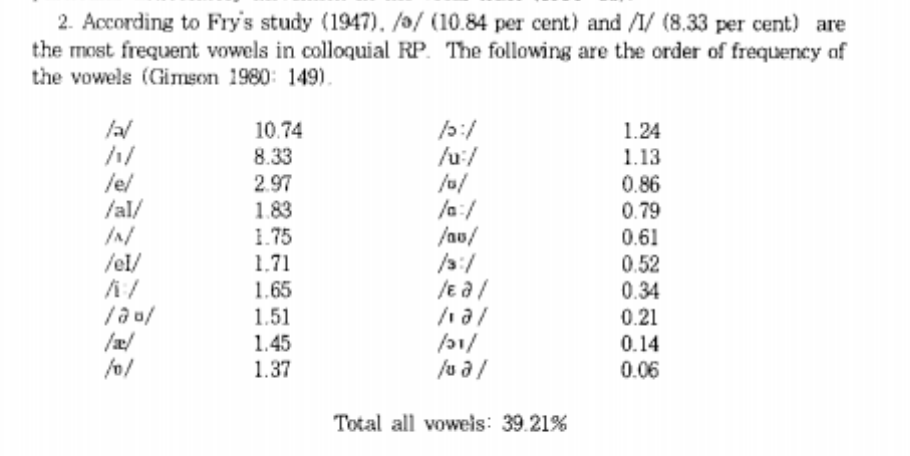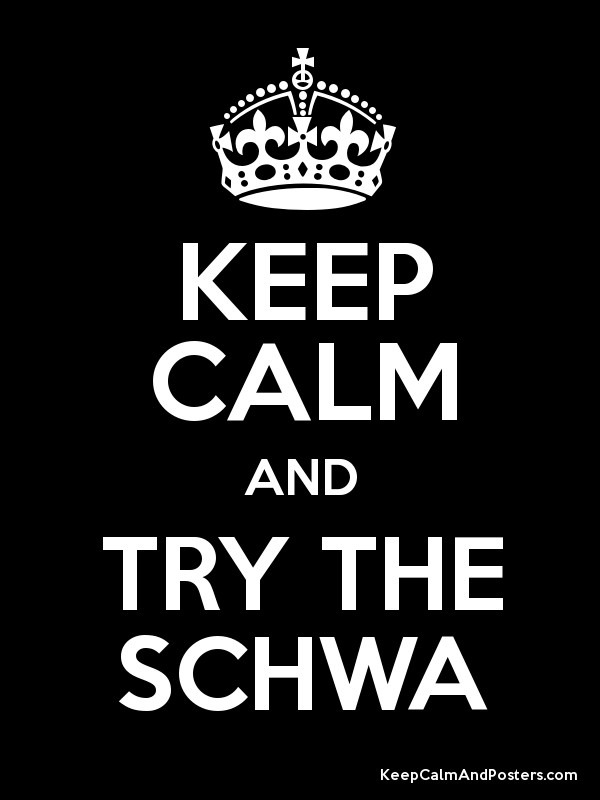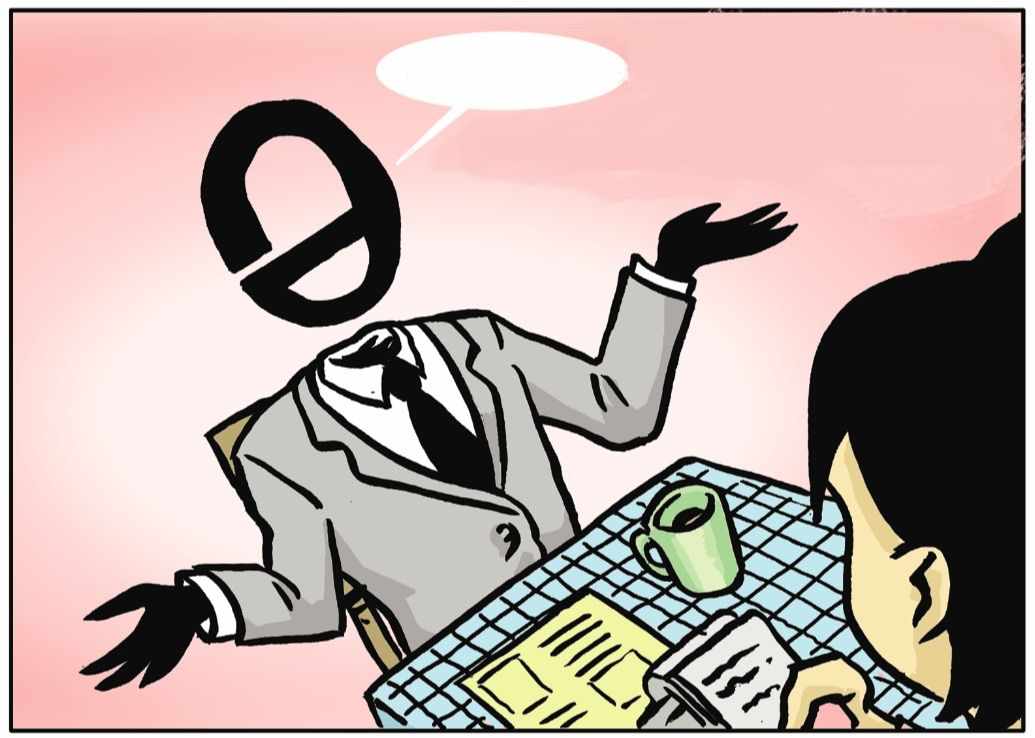If you want to speak clear, natural English, and improve your listening comprehension, you need to be acquainted with Schwa, the most common English vowel sound. It looks and sounds like this:

Pronunciation of schwa
Schwa is present in almost all words in English with 2 or more syllables. The key thing to remember is that this all-important weak vowel sound replaces any vowel sound letter on the unstressed syllable of a multi-syllabic word. If you hear Schwa, you can be sure that you’re hearing a single word with more than one syllable. If you hear two stressed syllables for example, it is most likely that we’re referring to two words. For instance, the word ‘human’ (HU-man) has 2 syllables with the stress on the first syllable. The A on the second weak syllable sounds as Schwa:
Human
If both syllable were stressed, you might think that it’s the name of a person: HUGH MANN
Any vowel can sound as Schwa
A = ə
Chocolate: As with many 3 other syllable words, the middle Schwa disappears altogether, while the final A is weakened
CHOC(o)late
Kansas: The Schwa on the weak syllable makes it clear that it is one word.
KANsas
Important: Apart from the final syllable schwa sound, the final T on a word often becomes a glottal stop. Also, the ‘i’ on the unstressed first syllable keeps its sound.
imPORtant
Alone: Schwa is on the first syllable here.
aLONE
Local: Many learners of English place the stress on both syllables on this word, which typically leads to misunderstandings.
LOcal
E = ə
Eliza Here, the first and last syllable are heard as Schwa
eLIZa
Siren Schwa is a very relaxed sound and is often hard to hear
SIren
Ferocious Here the first syllable is unstressed. The final syllable with -IOU is also Schwa
feROcious
Problem A typical pronunciation mistake is to place too much stress on the final syllable
PROBlem
I = ə
Hampshire: As with many place names ending in -SHIRE, it is said as Schwa
HAMPshire
Villain: Many learners of English are surprised to find out that the combination of –ai is sounded as Schwa
VILlain
Civil: The i sound in the weak syllable here sounds as schwa, but in some words stays as /i/ as in ‘happy’
CIVil
Council: Here the I in the weak syllable is Schwa
COUNcil
O = ə
Mirror: It is very common for non-native speakers of English to pronounce the unstressed O in its strong form.
MIRror
Common: If you’re not prepared to hear Schwa replacing the O letter, you might not understand the word.
COMmon
Major: This word is typically hard to understand and hard to pronounce.
MAjor
London: This place name is commonly mispronounced. Apart from the final Schwa, notice that the first syllable is said with a short A.
LONdon
U = ə
Circus: Now you can safely ask for directions to Piccadilly Circus without being misunderstood!
CIRcus
Focus This is one of the most commonly mispronounced words in English because of the U in the weak syllable becoming Schwa.
FOcus
Arthur: If you don’t expect the Schwa here, you might not understand this name when pronounced correctly.
ARthur
Album, Second language English speakers get used to seeing the U in writing and pronounce it as the letter.
ALbum
Minimum The middle weak syllable stays as /i/, with the final U becoming Schwa
MINimum
As you can see, Schwa is extremely important if you want to speak English clearly and naturally and better understand native speakers. The graph below clearly illustrates that it is by far the most common vowel sound in English, and is used in many words where you wouldn’t expect to hear it**.**

For more practise you can download our fun new app on iOS or Android. Also, if you want to know some fun fact about schwa, check out this article. In the meantime, here’s a word of advice to all you English learners:


